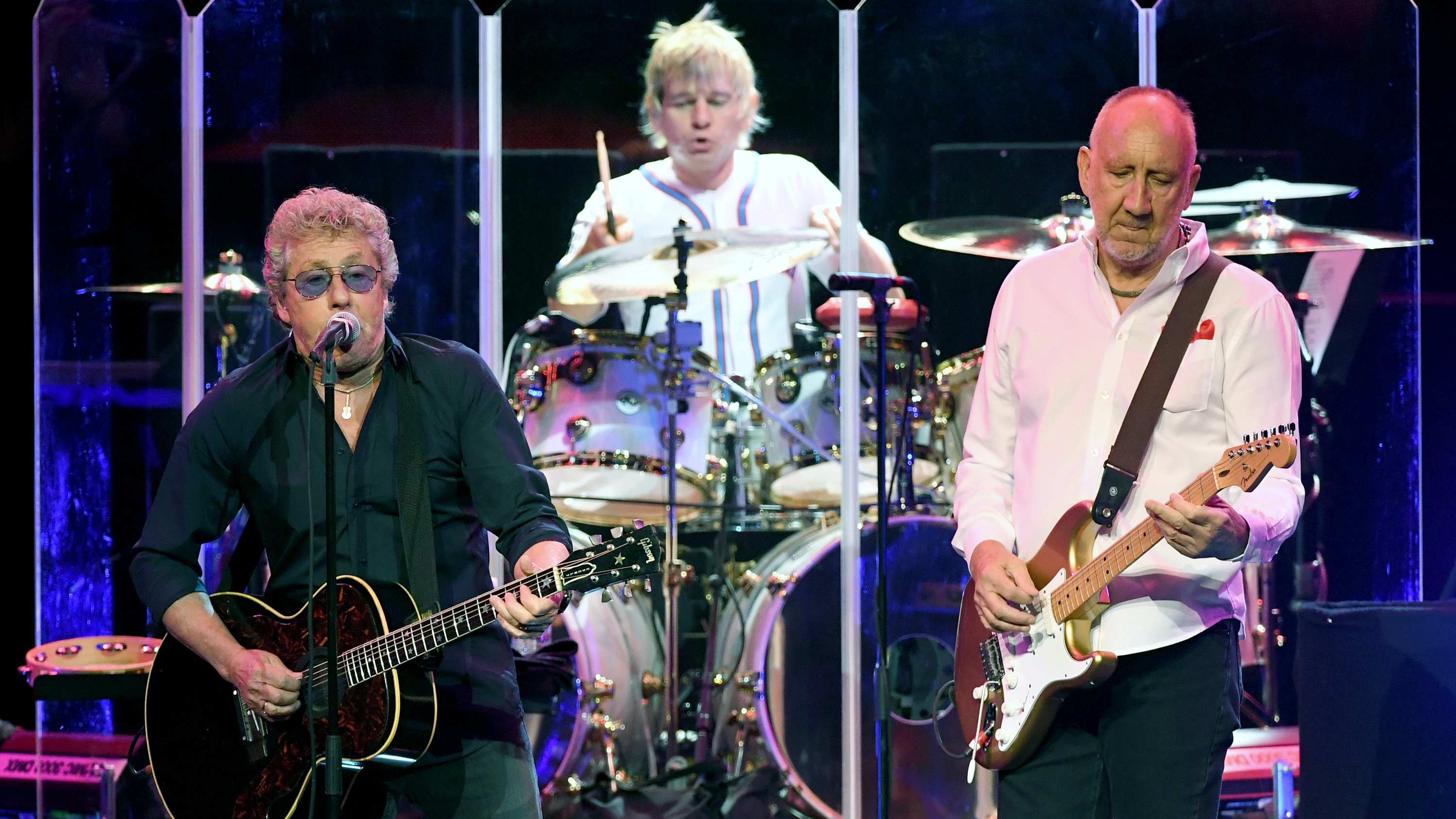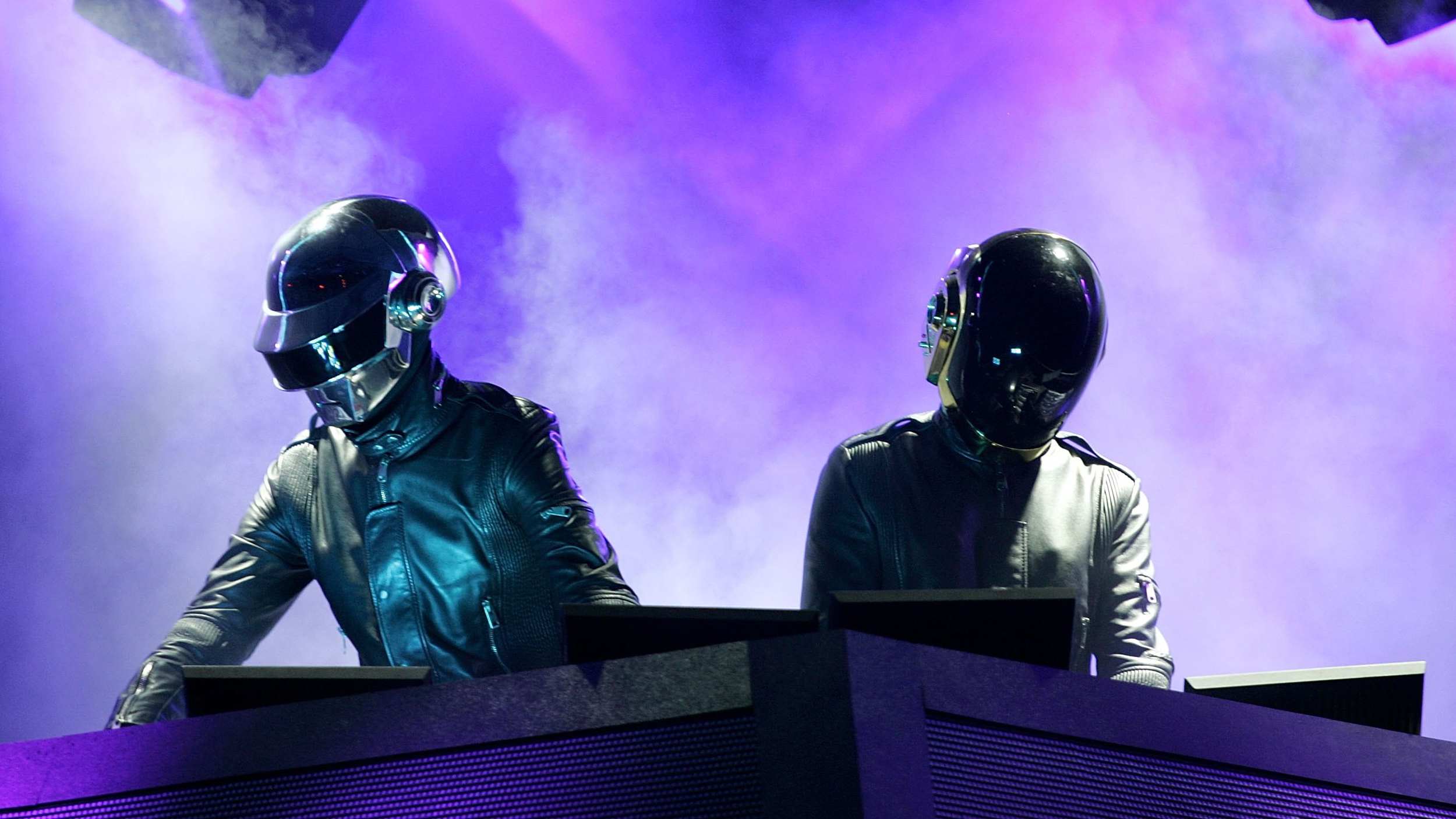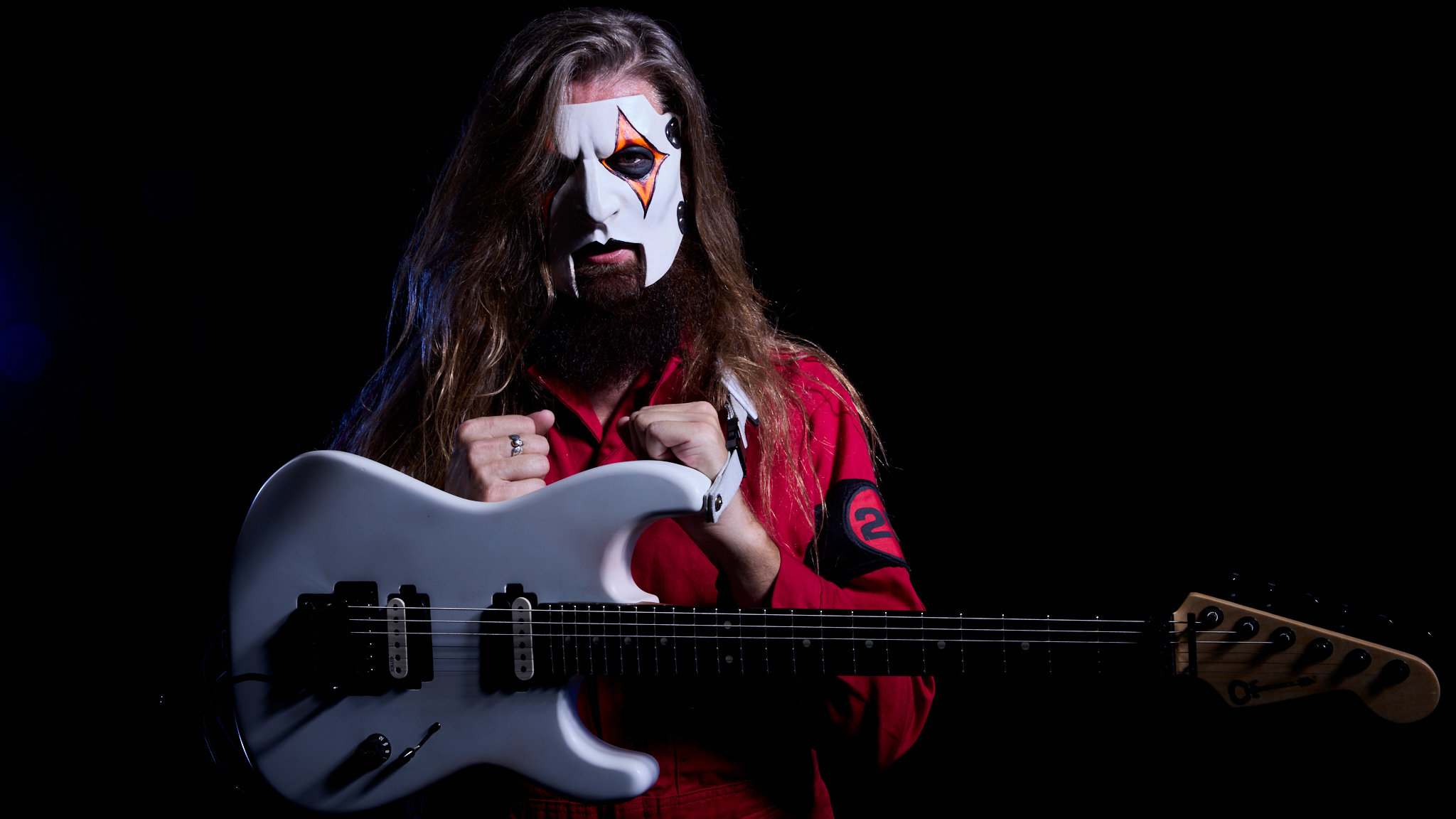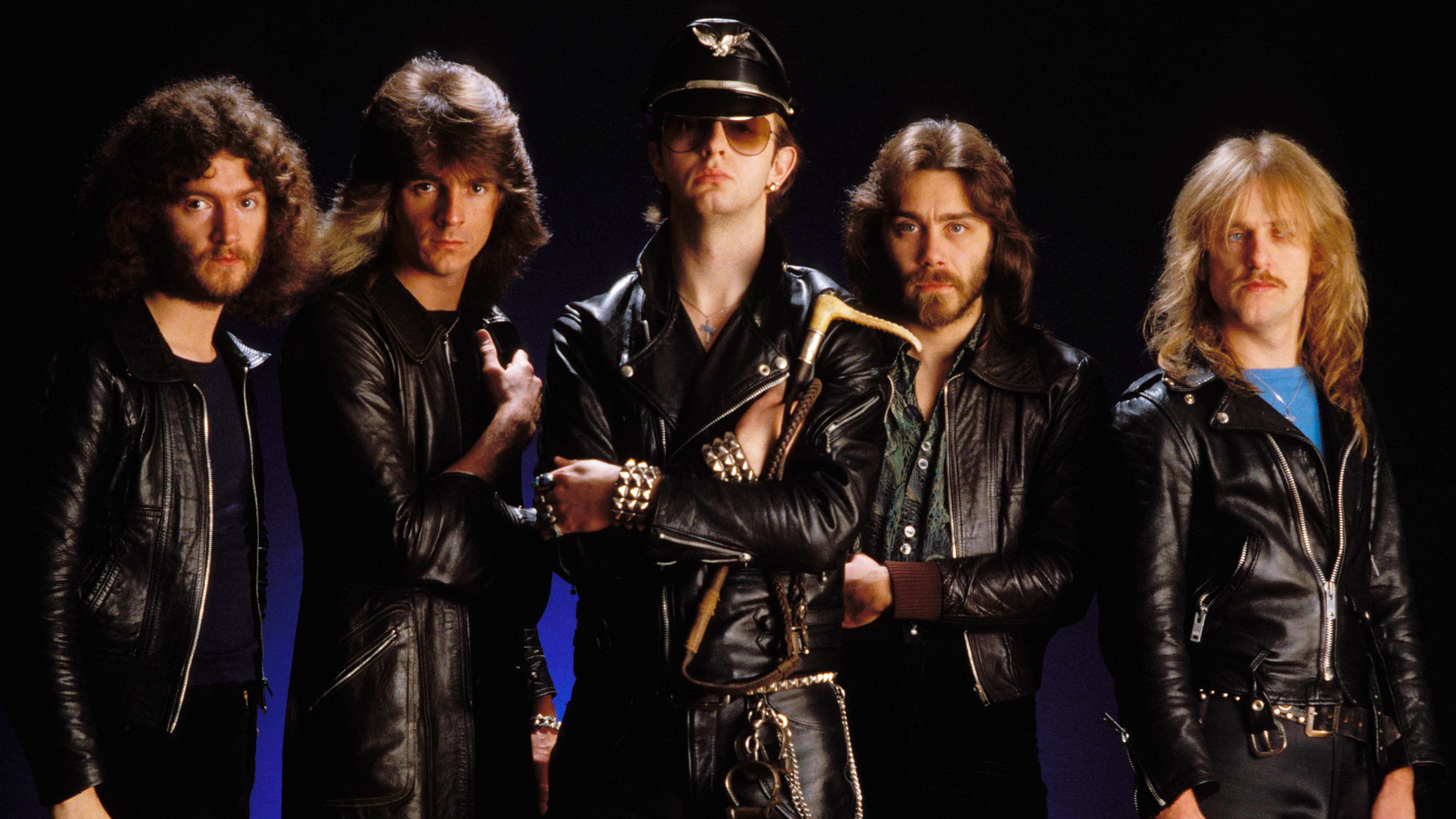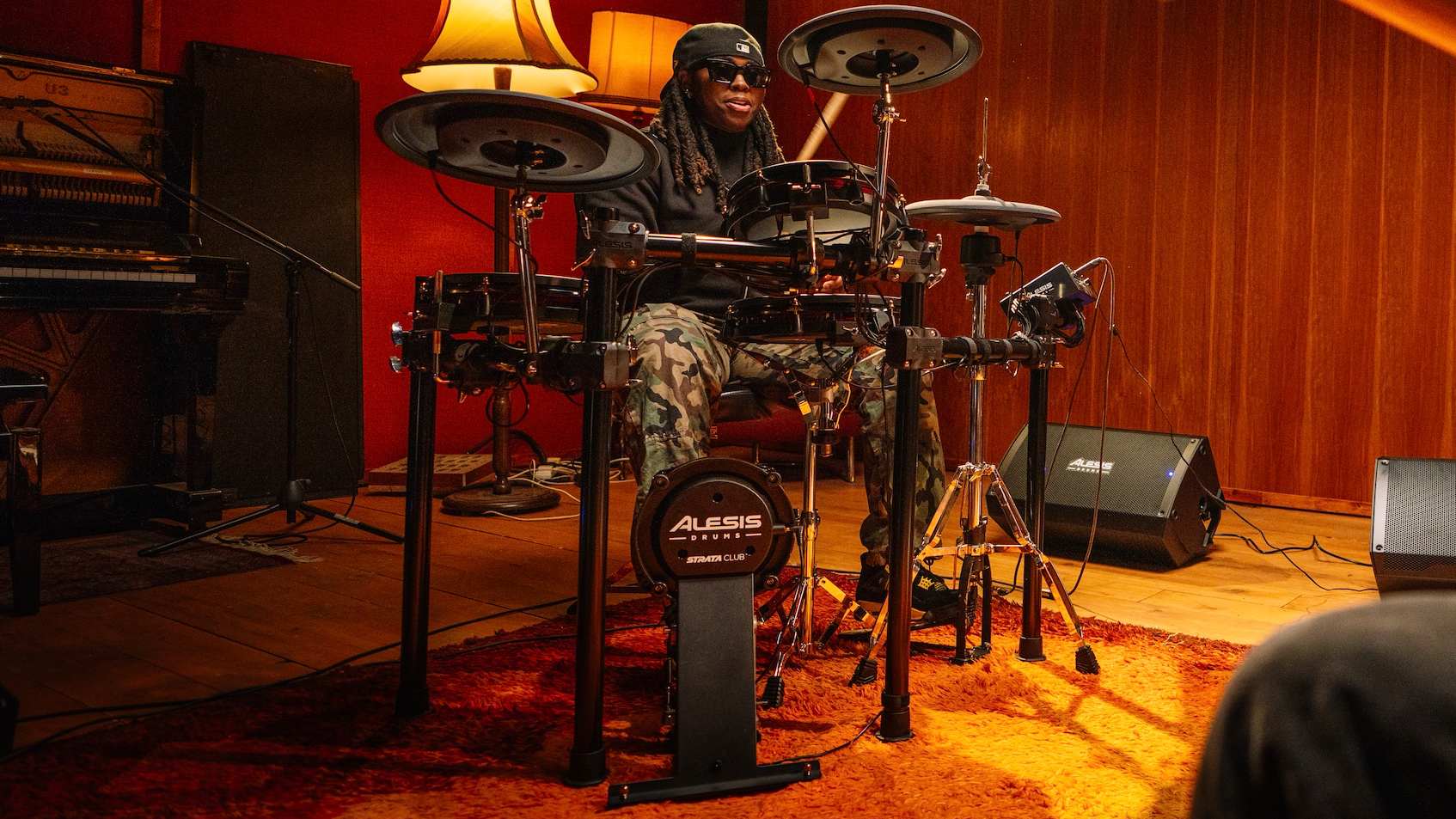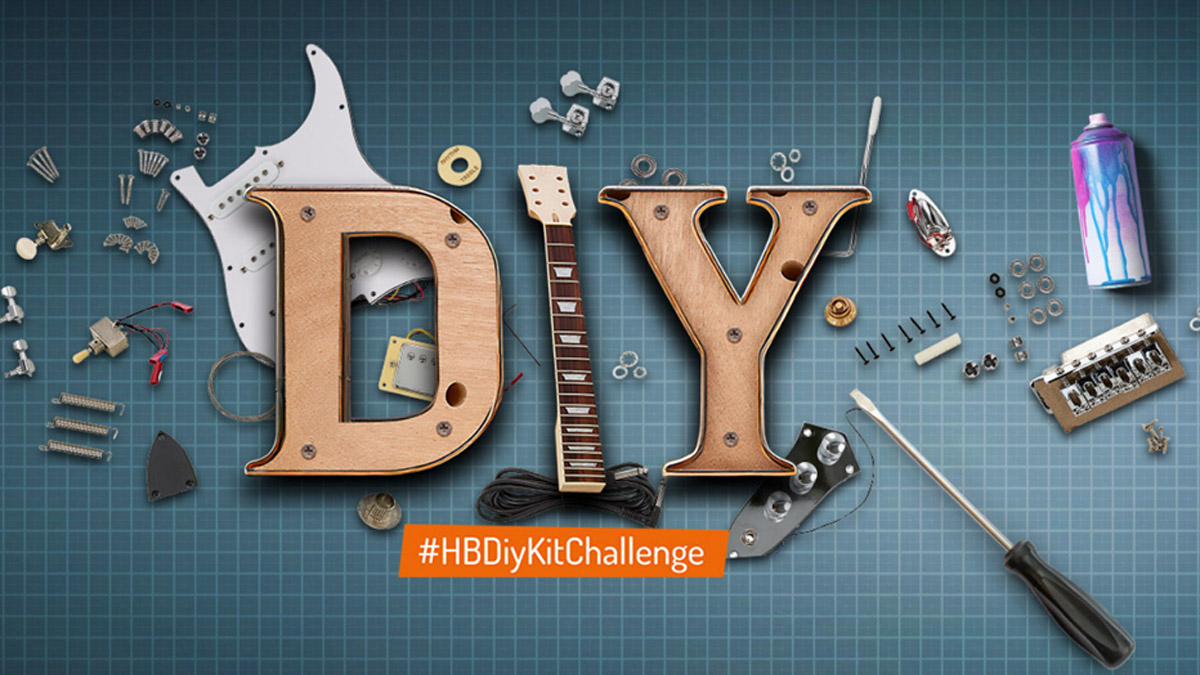Gryffin: "After I discovered deadmau5, Skrillex and Avicii, I immediately downloaded Ableton Live"
Gryffin tells us how going from AC/DC to deadmau5 and classical piano to Ableton Live helped him launch his bid for Spotify superstardom
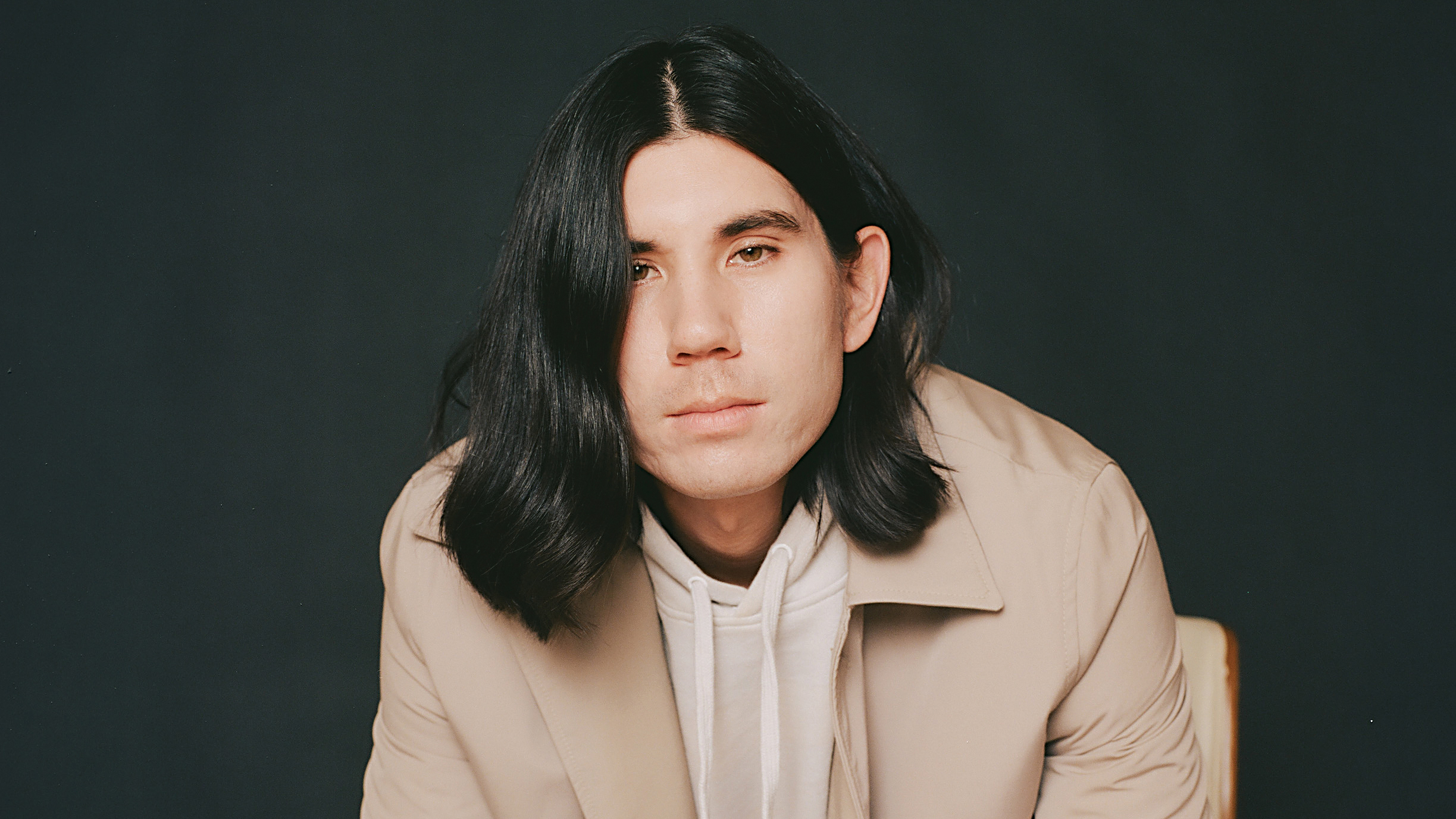
Dan Griffith, aka Gryffin, is a US DJ, songwriter and record producer who is fast carving himself out a fanbase of millions across Spotify and YouTube.
He released his debut (and critically acclaimed) album Gravity in 2019, after making a name with a variety of melodic house tunes, including Heading Home with Josef Salvat (a Number One on the Spotify US charts) and Just For A Moment ft. Iselin (which has hit 51 million views on YouTube and counting).
Since then he’s worked with Maroon 5, Carly Rae Jepsen, Aloe Blacc, AlunaGeorge, One Republic, Olivia O’Brien, and MØ among many others. So when he teamed up with Norwegian and Ed Sheeran remixer DJ Kygo late last year, the project was almost destined for success.
The resulting single, Woke Up In Love, with Britain’s Got Talent singer Calum Scott was a huge hit, and together with another massive Gryffin tune, Reckless, has helped the US producer amass some 10 million monthly Spotify fans and over a million YouTube subscribers.
Gryffin’s production ethos has almost certainly helped him attract this healthy fanbase, and here he dissects these methods and talks us through his (almost) software-only setup.
How did you start out in music production in the first place?
“I started music at a very young age. I’ve been classically trained on piano since about seven years old and I’m very inspired by The Beatles and classic rock bands. I grew up listening to Led Zeppelin and AC/DC so that inspired me to pick up the guitar.
Get the MusicRadar Newsletter
Want all the hottest music and gear news, reviews, deals, features and more, direct to your inbox? Sign up here.
“When it came to my artist project, I wanted to be one of the first electronic artists to use the guitar at the forefront of their music. I started doing that all the way back when I was making remixes up until now. If I didn’t start remixing, I would not be where I am today.”
So when did you discover the computer music route to music production?
“When I was in college after I discovered DJs like deadmau5, Skrillex, and Avicii. I was enamoured with the music, and I immediately downloaded Ableton to start playing around with making electronic music. I quickly wanted to start implementing organic elements into the electronic elements and samples I was using. Gryffin pretty much wouldn’t exist without it.
“The Gryffin sound is a combination of organic and electronic sounds that come together to make uplifting, emotional dance music. Without the help of my software, I wouldn’t be able to do what I do today.”
How would you say you became successful, or at least able to make a living from music?
“It’s really hard to pick one exact point because there are a number of really important moments in the Gryffin project that brought it to where it is. I think the first moment that really sticks out to me that changed a lot was my first performance at Coachella.
“During my set, the Sahara tent was overflowing with people in the desert heat and I just remember people texting and emailing me after that show. I quickly realised that the performance was a major moment in the project’s trajectory and led to a lot of opportunities following it.”
What is your production philosophy?
“I definitely try to be as organic as possible in my music. Instead of using only samples or electronic sounds, I’ve always incorporated elements like acoustic and electric guitar into my songs. Additionally, I always try to work with toplines and demos that are authentic and emotionally charged. Music is a very emotional experience, and when I’m creating a song, I try to build a world with each song.”
Tell us about the gear in your studio?
“When it comes to my go-to studio gear, my DAW is Ableton Live, monitors are Genelec, and the vital hardware I use is a Prophet Rev2 and Universal Audio 1176.”
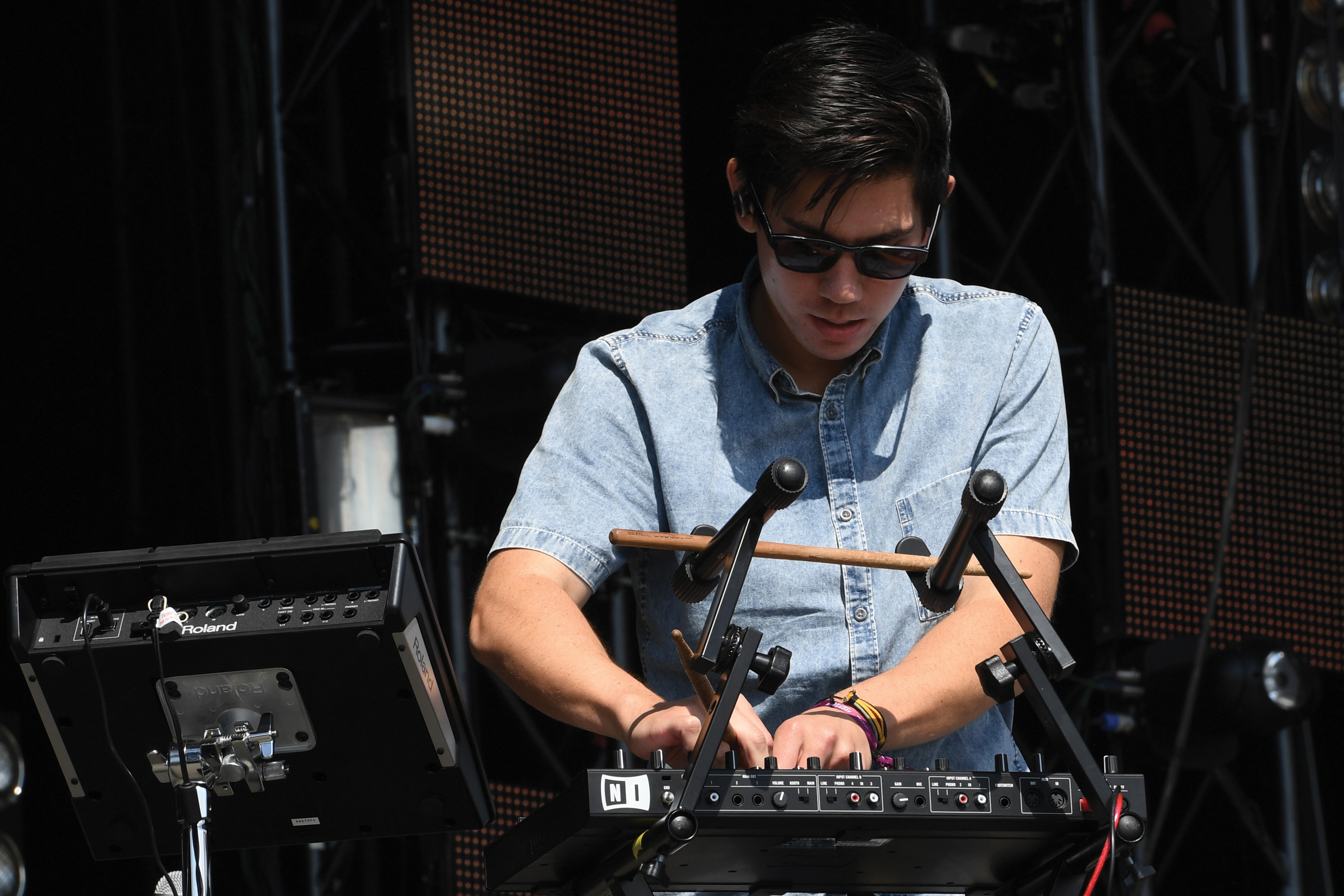
Tell us a bit more about these plugins?
“XFer Serum. It’s just become a go-to synth for me for bass sounds and synth leads. Great sounds and easy to use. Love it.
“u-he Diva. Although super CPU-heavy, it’s got some expansive sounds and has a lot of depth to it. I’ve really been enjoying this lately.
“XFer LFO Tool. It’s been super helpful with having maximum control of sidechaining my sounds, but I’ve also been using it to modulate bass and synth sounds with the LFO shaper. It can create some really interesting movements to sounds and it’s really fun.
“Soundtoys Suite. I use AlterBoy on a lot of vocal chops/processing. Decapitator is my favourite saturator to help colour sounds and distort in a sonically pleasing way.
“FabFilter Suite. I use the entire suite for various situations. I use their EQ on almost every single track that I make. Saturn is used to further process and colour sounds. I use the limiter on my master chain.”
How do you tend to start a track?
“A track normally starts with a topline and then I begin to experiment with different chord progressions to see what I feel pairs with a topline the best. At that point, I will experiment with different melodic and drum arrangements to accompany what I already have.
A track normally starts with a topline and then I begin to experiment with different chord progressions to see what I feel pairs with it the best
“Once I’m comfortable with my rough arrangement, I’ll start to dial in the sonics on each of the instruments and layers to make sure everything fits together well. After that, I’ll begin to send the track around to my friends and family to see what they think!”
Do you have any production tricks?
“I write all my melodies and chords with real instruments (guitar and piano). I think that performing the melodies as I write helps me get into a more flow-like state and just let my emotions/feelings flow freely without having to look at the computer screen.”
How do you know when a track is done?
“A track is never truly finished in my opinion. As a creative, you will always see things that you could have added here or could have changed there after the fact. However you have to be confident and trust in the time and effort that you’ve put forth and put your music out there. My advice would be to arrange the track fully so you have something, and then go back and refine elements you feel can be better or can be accentuated.”
What’s on your gear wishlist?
“A Roland Juno-106 synthesizer. I’ve been wanting one for ages to have those nice warm synth/pads in my mixes. Hopefully this is the year!”
How do you approach working with artists and collaborating as a producer?
“Every collaboration is different. Sometimes I’ll be sent a song and from there I’ll produce it out until it’s finished. Other times, I’ll be in a session with producers, writers, and artists where we’ll start and write a song from scratch, where I’ll then finish the production in my home studio. Other times, I’ll have a song I really love and I’ll hop in the studio with one of my producer friends and we’ll jam out trying to build a unique production around it.”
Which track do you wish you’d produced and why?
“So many, but the first song that comes to mind is Slide by Calvin Harris, Frank Ocean, and Migos. That song was just so ahead of its time, and it exhibits exactly what I try to create with my music in terms of combining electronic and organic elements to make beautifully simple yet evolving songs that are timeless. One of my favourite videos on the internet is when Calvin breaks down how he made the song.”
What do you look for when you start doing a remix?
“The starting point for remixes for me is that I have to really connect with a vocal from an emotional standpoint. I then start on the piano and build a chord progression. After that, I usually work on the drop where I’ll break out guitar or create a synth lead.
“From there on out, it’s really just a case of building out drums, adding effects, and finishing the track with the addition of bells and whistles. Working on remixes really helped me understand how to structure my songs and really helped me segue to producing originals.”
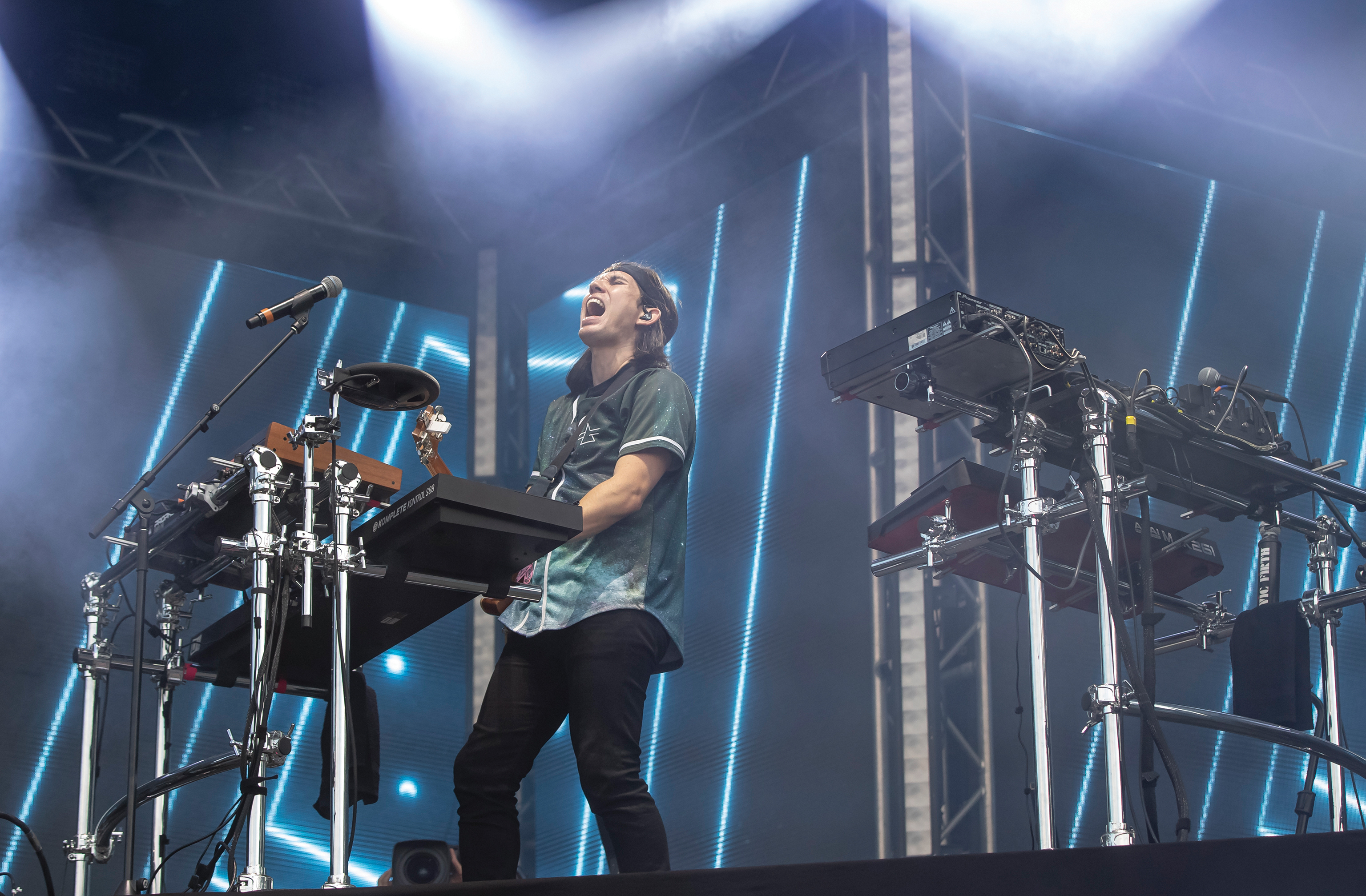
What advice would you give to anyone looking to have a career like yours?
“My biggest piece of advice is develop a live show around your music, not other people’s music. Any DJ or live artist can play others’ music, but when you’re cultivating a live fanbase, you want them to come to see you. I was very adamant early on in my career for my project to be based around a live show instead of a DJ set to establish myself as a live act. Now I do both, which is fun.
All producers nowadays have access to the same plugins and software, but it really is how you construct melodies and your own vibe that connects fans to your music
“Similar to my advice around live music, I would tell up-and-comers to find their sound in the studio. All producers nowadays have access to the same plugins and software, but it really is how you construct melodies and your own vibe that connects fans to your music.
“Just remember that it all comes down to the music at the end of the day. Whenever I’m preparing for a new era or chapter in my career, I always make sure that the music is where I want it to be and something I’m excited about. Social media can be a powerful tool to help artists grow their fanbase and overall exposure, but it cannot replace great music.”
What else do you have planned?
“I have a lot of music coming this year and some big shows I’m excited to announce. I’m returning to some of my favourite festivals like Electric Forest, Ultra, and Hangout with some big slots. So really excited for that.”
Gryffin is touring around the US this April and May and heading over to the UK for the Leeds and Reading festivals in August. Woke Up In Love is out now and the album Gravity is out on Apple Music.



I'm the Music-Making Editor of MusicRadar, and I am keen to explore the stories that affect all music-makers - whether they're just starting or are at an advanced level. I write, commission and edit content around the wider world of music creation, as well as penning deep-dives into the essentials of production, genre and theory. As the former editor of Computer Music, I aim to bring the same knowledge and experience that underpinned that magazine to the editorial I write, but I'm very eager to engage with new and emerging writers to cover the topics that resonate with them. My career has included editing MusicTech magazine and website, consulting on SEO/editorial practice and writing about music-making and listening for titles such as NME, Classic Pop, Audio Media International, Guitar.com and Uncut. When I'm not writing about music, I'm making it. I release tracks under the name ALP.
